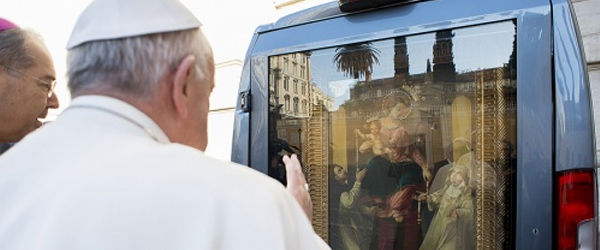I don’t think I’ve ever heard anyone brag about being weak. Why would they? We live in a culture that celebrates the strong, the beautiful and the successful. We want to have the perfect home, family, job and body. In today’s second reading, the Apostle Paul reminds us that perfection is not required by God. In fact, it may not even be desired. “I will rather boast most gladly of my weaknesses,” Paul writes, “in order that the power of Christ may dwell with me.”One of the things I find most refreshing and liberating about the Gospel message is that it frees us to be weak. We don’t have to be perfect, which means we don’t have to pretend to be perfect. In fact, Paul suggests, when we try to be perfect we are probably moving away from Christ rather than toward him. Look at it this way: If we are boasting about being strong, we are calling attention to ourselves as superior to others. Honesty about our faults and failures opens the door to the experience of God’s grace or, as Paul puts it, the “power of Christ.”It’s a shame, really, that Christians are often presented in the mainstream media as morally flawless, and then they are harshly criticized when they turn out to be all too human. We all fail. We all sin. It’s another way of saying we all need the grace and love of God. We don’t win God’s love through our exceptional performances; we receive it as a gift to heal our brokenness.We are not, in the end, self-sufficient; we are dependent on God for all that we have and all that we are.Of course we all want to be happy, successful and beautiful. There’s nothing wrong with these desires. But being happy, successful and beautiful doesn’t necessarily mean we are closer to God than anyone else. The risk is that by gaining the admiration of our peers, we lose sight of our intrinsic value as children of God. Pride is often identified as one of the main obstacles to faith. I’m not talking about self-esteem, where we feel good about ourselves because of who we are as God’s children. Spiritual pride is when we believe we are self-sufficient. When we have this kind of pride, we take credit for our good fortune and success, and we look down on those who have not been able to achieve similar feats. But we are not, in the end, self-sufficient; we are dependent on God for all that we have and all that we are. Pride causes us to praise ourselves. Humility leads us to praise God. Humility tends to magnify the strength and the love of God. When we acknowledge our weaknesses, we find God’s strength. When we experience God’s strength, we are grateful. When we are grateful, we worship. Bill Peatman writes from Napa. He may be reached at [email protected].

